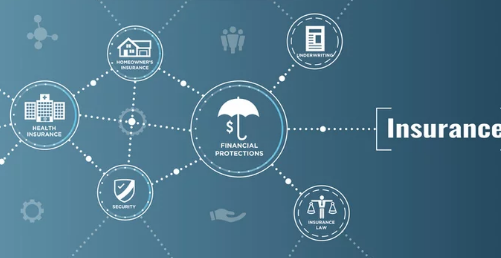Running a business is rewarding, but it also exposes you to risks that could cost thousands—or even millions—of dollars if you’re not prepared. From customer accidents to legal disputes, unexpected challenges can put your finances and reputation at stake. That’s why business liability insurance is a must-have for companies of all sizes.
This complete guide will help you understand what business liability insurance is, why it’s important, what it covers, and how to choose the right policy for your needs.
What Is Business Liability Insurance?
Business liability insurance—sometimes called commercial liability insurance—protects your company if it’s held legally responsible for injuries, property damage, or other claims made against your business.
In simple terms, it helps cover:
- Legal costs and attorney fees
- Settlements or judgments
- Medical bills for injured parties
- Repair or replacement of damaged property
Without it, you’d have to pay these expenses out of pocket, which could be devastating for your business.
Types of Business Liability Insurance
There are several types of liability coverage, each designed for different risks:
- General Liability Insurance
- Covers third-party injuries (like a customer slipping in your store).
- Protects against property damage caused by your business operations.
- Includes coverage for advertising injuries (such as copyright infringement).
- Professional Liability Insurance (also known as Errors & Omissions, or E&O)
- Protects businesses that provide professional services or advice.
- Covers claims of negligence, mistakes, or failure to deliver promised services.
- Essential for consultants, lawyers, accountants, and IT professionals.
- Product Liability Insurance
- Covers claims of harm caused by products you manufacture, sell, or distribute.
- Important for retailers, wholesalers, and manufacturers.
- Employer’s Liability Insurance
- Protects your business if an employee sues for work-related injuries or illnesses not covered under workers’ compensation.
- Cyber Liability Insurance
- Covers losses from data breaches, hacking, and cyberattacks.
- Helps pay for legal defense, data recovery, and customer notifications.
What Does Business Liability Insurance Cover?
Depending on your policy, liability insurance typically covers:
- Bodily injury: Medical expenses and legal costs if someone is hurt on your premises.
- Property damage: Repair or replacement if your business damages someone else’s property.
- Legal defense costs: Attorney fees, court costs, and settlements.
- Advertising injury: Claims of libel, slander, or copyright infringement.
What Isn’t Covered?
It’s important to know what liability insurance doesn’t cover. Common exclusions include:
- Employee injuries (covered by workers’ compensation).
- Damage to your own business property.
- Intentional acts or fraud.
- Auto accidents (covered by commercial auto insurance).
Why Is Business Liability Insurance Important?
- Protects Your Finances – Legal claims can bankrupt small businesses. Insurance absorbs these costs.
- Builds Trust – Clients and partners feel safer working with insured businesses.
- Meets Legal or Contractual Requirements – Many landlords, clients, and government contracts require proof of liability coverage.
- Ensures Business Continuity – Instead of draining resources, insurance allows you to recover quickly from unexpected claims.
How Much Does Business Liability Insurance Cost?
The cost depends on factors like:
- Business size and industry
- Location
- Claims history
- Coverage limits and deductibles
On average, small businesses may pay between $30 and $60 per month for general liability insurance, though costs vary widely.
How to Choose the Right Policy
- Assess Your Risks – Identify the biggest threats in your industry.
- Compare Quotes – Shop around and compare coverage, not just price.
- Bundle Policies – Many insurers offer Business Owner’s Policies (BOPs), which combine liability and property insurance at a lower cost.
- Check Contract Requirements – Ensure your coverage meets the needs of clients, landlords, or partners.
- Work With a Broker or Agent – An expert can help tailor coverage to your specific needs.
Conclusion
Business liability insurance isn’t just a smart investment—it’s a vital shield that protects your company’s future. Whether you’re a freelancer, a shop owner, or a growing enterprise, the right coverage ensures you can weather lawsuits, accidents, and unexpected claims without putting your business at risk.
Bottom line: Every business, no matter how small, should have liability insurance. It’s not just about compliance—it’s about security, trust, and peace of mind.






